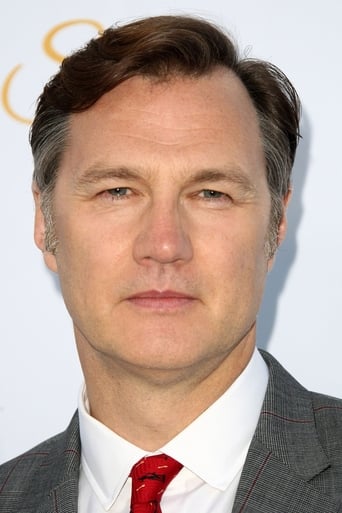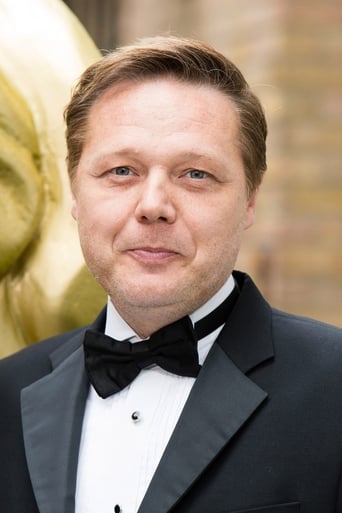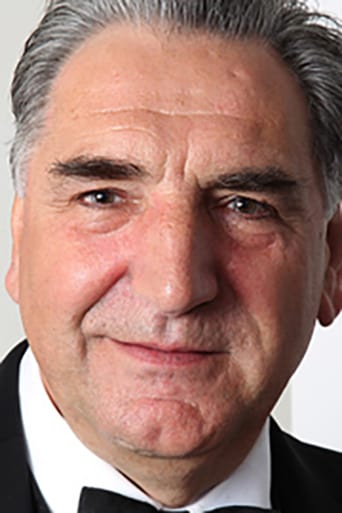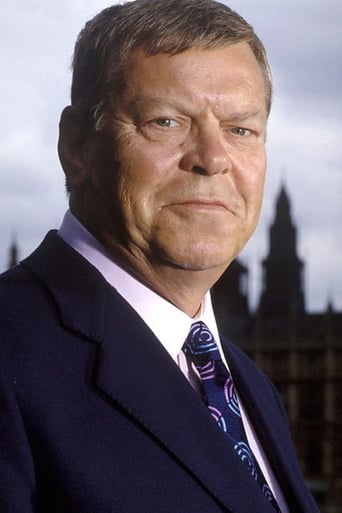Hellen
I like the storyline of this show,it attract me so much
SunnyHello
Nice effects though.
Brenda
The plot isn't so bad, but the pace of storytelling is too slow which makes people bored. Certain moments are so obvious and unnecessary for the main plot. I would've fast-forwarded those moments if it was an online streaming. The ending looks like implying a sequel, not sure if this movie will get one
Nicole
I enjoyed watching this film and would recommend other to give it a try , (as I am) but this movie, although enjoyable to watch due to the better than average acting fails to add anything new to its storyline that is all too familiar to these types of movies.
NateWatchesCoolMovies
Sean Bean Week: Day 7The Red Riding Trilogy is one of the most dense, absolutely impenetrable pieces of work I've ever seen, let alone attempted to dissect with my clunky writing skills. It's also fairly horrifying, as it chronicles the tale of the Yorkshire Ripper, an elusive and mysterious serial child killer who terrorized this area of Britain through the late 70's and early 80's. Viler still are the strong implications that very powerful people, including the brass of the West Yorkshire police, made every disgusting attempt to cover up the crimes and protect the killer, who's murders included that of children. It's a brave move by UK's Channel 4 to openly make such notions obvious within their story, and commendable the level of patience, skill and strong ambition in the undertaking is quite the payoff, whilst simultaneously taking a toll on you for sitting through it. The sheer scope of it must be noted; it's separated into three feature length films, each vastly different in setting, character and tone, and each blessed with a different director. The filmmakers even went as far as to film the first, which is set in 1974, in 16mm, the second in 35mm being set in 1980 and the third makes a leap to high definition video and takes place in 1983. Such a progression of time is a dismal reflection of the sticky corruption which clings to societies, decaying them stealthily over years, and the few keen individuals who will not let the truth die as long as there is a glimmer of uncertainty. Now, if you asked me exactly what happens over the course of this trilogy, who is who, what has happened to which characters and who is guilty, I simply wouldn't be able to tell you. It's a deliberately fractured narrative told through the prism of dishonest, corrupt psyches and has no use for chronology either. Characters who you saw die in the first film show up in the subsequent ones, actors replace each other in certain roles, and there's just such a thick atmosphere of confusion and despair that in the 302 minute running time I was not able to make complete sense. I think this is a great tactic to help you realize that the film means to show the futile, cyclical nature of reality, as opposed to a traditionally structured story with a clear cut conclusion. Events spiral into each other with little rhyme or reason, until we feel somewhat lost, knowing full well that terrible events are unfolding in front of our eyes, events that are clouded and just out of our comprehensive grasp in a way that unsettles you and makes you feel as helpless as the few decent people trying to solve the case. One such person is an investigative reporter searching for the truth in the first film, played by Andrew Garfield. He stumbles dangerously close to answers which are promptly yanked away by the sinister forces of the Yorkshire police, brutalized and intimidated into submission. He comes close though, finding a lead in suspiciously sleazy real estate tycoon Sean Bean, who's clearly got ties to whatever is really going on. The level of willful corruption demonstrated by the police is sickening. "To the North, where we do what we want" bellows a chief, toasting dark secrets to a roomful of cop comrades who are no doubt just as involved as him. The kind of blunt, uncaring dedication to evil is the only way to explain such behaviour, because in the end it's their choice and they know what they're doing. Were these officers as vile as the film depicts in the real life incidents? Someone seems to think so. Who's to know? Probably no one ever at this point, a dreadful feeling which perpetuates the themes of hopelessness. The second film follows a nasty Police Chief (David Morrissey) who is bothered by old facts re emerging and seems to have a crisis of conscience. Or does he? The clichéd cinematic logline "no one is what they seem" has never been more pertinent than in these three films. It's gets to a point where you actually are anticipating every single person on screen to have some buried evil that will get upturned. A priest (Peter Mullan is superb) shows up in the second film only to be involved in dark turns of the third. Sean Bean's character and his legacy hover over everything like a black cloud. A mentally challenged young man is held for years under suspicion of being the Ripper. A disturbed abuse survivor (wild eyed Robert Sheehan) seeks retribution. A Scotland Yard Detective (Paddy Considine) nobly reaches for truth. Many other characters have conundrums of roles to play in a titanic cast that includes Cara Seymour, Mark Addy, Sean Harris, James Fox, Eddie Marsan, Shaun Dooley, Joseph Mawle and more. The process in which the story unfolds is almost Fincher - esque in its meticulous assembly, each character and plot turn a cog in a vast machine whose purpouse and ultimate function are indeed hard to grasp. I need to sit down and watch it at least two more times through before the cogs turn in a way that begins to make sense to me, and a measurable story unfolds. It's dark, dark stuff though, presenting humanity at its absolute worst, and in huge quantities too, nightmarish acts that go to huge levels of effort just to produce evil for.. well, it seems just for evil's sake, really. The cast and filmmakers craft wonderful work though, and despite the blackness there is a macabre, almost poetic allure to it, beauty in terror so to speak. It's rough, it's long, it's dense and it thoroughly bucks many a cinematic trend that let's you reside in your perceptive comfort zone, beckoning you forth with extreme narrative challenge, an unflinching gaze into the abyss no promise of catharsis at the end of the tunnel. There's nothing quite like it, I promise you.
Rockwell_Cronenberg
A great trilogy that just falls apart in the final act. In the first two films, we followed one protagonist on their mission to bring a killer to justice while also bringing down corruption within the Yorkshire police force. In 1983 however, the narrative fractures into three separate people, two of them having been involved from the start. We follow a member of the force who has for some reason just now decided after ten years of being corrupt and feeling bad about it that he's actually going to do something, a loser lawyer who basically gets yelled at until he tries to save the innocents that have been harmed by this seed of evil and a young male prostitute who has just had enough of all the wicked.The film doesn't have enough time to fully resolve all of it's story lines, but it tries very hard to wrap it all up as efficiently as possible. I admire this in a way (with something like this I'd rather have everything resolved over a lot being left wide open), but as a result the entire thing feels very rushed and a lot of stuff comes seemingly out of nowhere to help tie it all up in a neat bow. Aside from the whole thing being very rushed and all over the place, the actual narrative structure of the film takes a bizarre and disjointed shift. The other two films had pretty straight-forward narratives, but this one tries to do so many different things to help explain it all.There are flashbacks to the events of 1974, to help explain more about the corruption back in that day, but aside from the first time they never tell us when we're going back in time and sometimes it's honestly a little hard to figure out when we are. Along with that, we spend almost half of our time back in 1974, so the film doesn't even really feel like it should be titled 1983 because the focus doesn't seem to be much on it. They throw in some voice-over narration that feels very out of place as well, I guess to help with the lack of worthy screen time for one of our main players.Don't get me wrong, the themes are still strong and I love the grit and darkness of this entire trilogy, but this one just falls apart on so many levels. There's a whole subplot with a mystic that feels very out of place for such a grounded series and in some scenes they turn these corrupt police officers into such overbearing caricatures that you can't even buy that they're just greedy, selfish men who abuse their power. When they stand in a circle and toast themselves by saying, "To the North! Where we do what we want!" you can't help but laugh at the ridiculousness of it.The biggest surprise of it all is that, despite being very rushed and all over the place, the film drags along a lot. They should have had more time to properly explain everything, but even with that belief I was still losing interest in a lot of scenes. Overall, just a massive disappointment after two great films that came before it.
kluseba
This third part of the mini series presents once more a different genre with this very insightful and philosophical conclusion. The movie is less darker and brutal than the first two ones and talks more about hope than desperation. The movie talks about moral, forgiveness and remorse and presents once more a few new and profound characters.The movie has three main actors and begins with the fact that another young girl has been kidnapped nine years after the last murder. The remorseful cop Maurice Jobson, played by the brilliant David Morissey, wants to stop the insanity and begins to question the corruption, the violence and lies within the police. He falls in love with a clairvoyant and wants to save the kidnapped girl with her while his partners try to find a scapegoat for the new crime. He realizes that he has done some mistakes in his life and wants to change. He is now looking for forgiveness, truth and justice.The second main character is the fat and disillusioned lawyer John Piggott, played in a rather mediocre way by Mark Addy, whose father was one of the corrupt police officers that has been killed in mysterious circumstances, helps after much hesitation the mothers of the two scapegoats that are or have to go to prison for crimes they didn't commit.The third main character is the young and homosexual BJ, brilliantly played by Robert Sheehan, who has escaped from Torkshire and travels around the country to come back for a last act of vengeance.All those three characters come together in a grand finale. But before this conclusion, the story meanders back and forth through space and time and creates connections to the first two movies and even new connections beyond that. Those scenes help to create once more some very diversified and profound characters but it is sometimes difficult to follow this pattern and to understand what is happening right now or in the past. There are many flashbacks and changes of space and time in the movie and that makes it less dynamical and intense to watch than the first two ones. The strong point of the movie are the interesting characters and the fact that many points are explained and many questions are answered to that haven't been before.But I still felt disappointed about the conclusion. It seems too simple to me and I would have liked to have some more original explications, for example concerning the connection of the businessman Dawson to the murders.Because of the conclusion and less intense atmosphere, this third part is the weakest one of the series in my opinion. But I still gave seven stars because of the interesting characters and the fact that almost everything is explained in the conclusion of the movie. The philosophical style of this movie is very interesting but I preferred the drama style of the second or the first movie that was a great film noir and my favourite part of the series.All in all, this trilogy is interesting to watch and really presents three different kinds of a movie and creates connections in between them in an interesting way. Artistically, those series are really well done and most of the actors did an amazing job. But there is a lack of suspense in this slow paced series and the criminal investigations are rather boring. It was a good idea to watch the series, but honestly, I wouldn't but it or watch it again for a while.1974: 7,5 stars 1980: 7 to 7,5 stars 1983: 7 stars
lost-in-limbo
Here we have the final chapter of the this turbulently dark and maturely free-flowing three part mini-series, picking up three years after the second chapter, the story for 1983 might be a little convoluted (with the plot digging further into past events --- where some passages are set-up flashbacks leading us to even more surprises) it still was a fulfilling, harrowing and exciting way to close it off. It might not reach the heights of the first two chapters, as it came down a notch but for me it didn't disappoint and remained just as acceptably engaging as the previous entries.1983 sets the story that another young girl has vanished from the same area, where nine years earlier (set-up in the first chapter; 1974) a young girl's mutilated dead body was found with angel wings. Detective Maurice Jobson was originally on the case with an autistic man Michael Mishkin being accused of the murder/s, but now of this new development the family of the accused seeks the help from dreary lawyer John Piggott to get an appeal. At first hesitant, but Piggott learns some astonishing facts from Michael about police brutality and corruption at the core. There he goes on trying to take on the Yorkshire police on his own. While Detective Jobson seems to be having a change of heart and starts digging in to the case wanting to do the correct thing, which some of his fellow officers begin questioning.1983 pretty much follows on from 1974, as while 1980 seemed there more so there to connect/hold together some issues that worked its way in. The sprawling plot brings together all the pieces (child abuse, serial murders and police corruption) to put them as one; as every little detail, lead and revelation about this deeply crafted and intelligent crime story comes to a conclusion. Recurring characters seem to find themselves being wrapped up too and it actually centres more on the endlessly brutal actions of the police behind closed doors. The story was never about the bigger picture of police corruption and violence, but just a small note of it with how this case (and also Yorkshire ripper) was manipulated for self-gain and power… the series focused on that aspect. Here the narrative for the last chapter is about someone trying to make a difference, no matter how much they're out of their league or badly tainted. This can be seen from the viewpoint of two central characters ; lawyer John Piggott and Detective Maurice Jobson. Both have regrets and troubled minds, but see this crusade to not turn a blind eye and at least add a touch of hope amongst such bleak, unflinching and fearful circumstances. David Morrisey had lesser roles in the early films, but this one its all about his character's transformation in what is a superbly reflective performance as Jobson. Mark Addy is also outstanding as lawyer Piggott. Then there's a third character; BJ (Robert Sheehan) who ties all the incidents together from all three chapters. The support is up to game with brilliant show-ins by Warren Clarke, Jim Carter, Daniel Mays and Peter Mullan.Director Anand Tucker just like the other additions captures the times through place and time, embarking with a visually crisp look but never forgetting the glassy and hardened edge that made this series an uneasy and challenging viewing. What always left a mark with me throughout the series, were the music scores and this chapter was no exception. Gloomy, but soulful and emotionally tailored. An unforgettable and stimulating TV crime drama.








